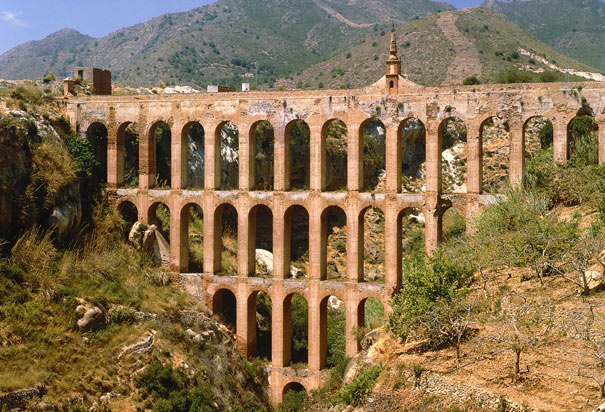leg·a·cy
n. pl. leg·a·cies
– anything handed down from an ancestor or a predecessor or from the past
 DIRECTIONS: Click on the links below and see the admired legacies still seen and used today!
DIRECTIONS: Click on the links below and see the admired legacies still seen and used today!
Art– Roman art also encompasses a broad spectrum of media including marble, painting, mosaic, gems, silver and bronze work, and terracottas, just to name a few.
Architecture – Roman architecture differed fundamentally from this tradition because of the discovery, experimentation and exploitation of concrete, arches and vaulting.
Engineering – Many of the buildings and engineering projects they designed are still around today and some are still being used example: Aqueducts, colosseum, and roads.
Language – Latin was originally spoken in Latium, Italy. Through the power of the Roman Republic, it became the dominant language, initially in Italy and subsequently throughout the Roman Empire. It developed into the Romance languages, such as French, Italian, Portuguese, Spanish, and Romanian. Latin and French have contributed many words to the English language. Latin and Greek roots are used in theology, biology, and medicine. How do we know what Latin Sounded Like? Listen to the sound of Latin and How Did Latin Become A Dead Language?
Philosophy – Roman philosophy is thoroughly grounded in the traditions of Greek philosophy.
Calendar – A History of the Months and the Meanings of their Names
Law and Justice – The Romans were one of the most legally minded people in history. The development of their law was an enduring achievement. Roman law formed during the Republic, was adapted to serve the needs of the Empire. When the Empire declined, it was carried forward into the legal system of the Middle Ages, where it became the model for European and South American law codes until the 21 century.
Citizenship -Citizenship in ancient Rome was a privileged political and legal status afforded to free individuals with respect to laws, property, and governance.
Circuses and Gladiators Culture
You must be logged in to post a comment.